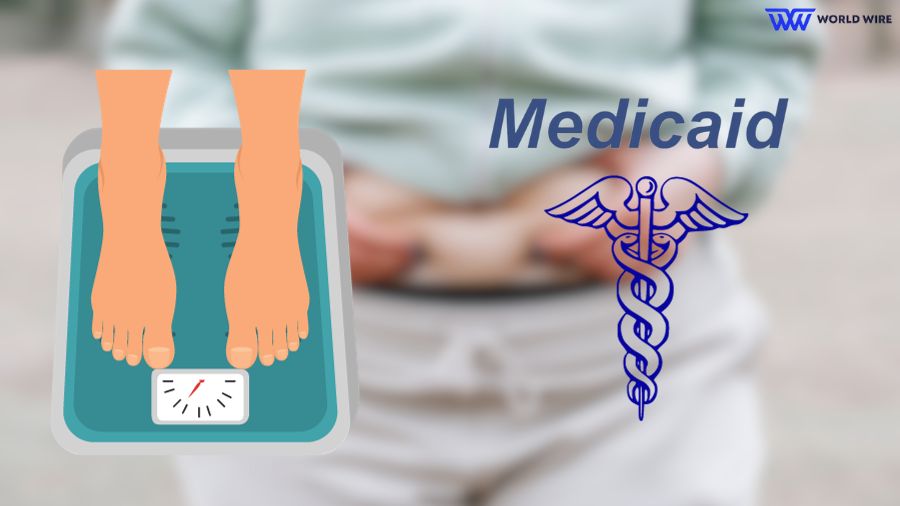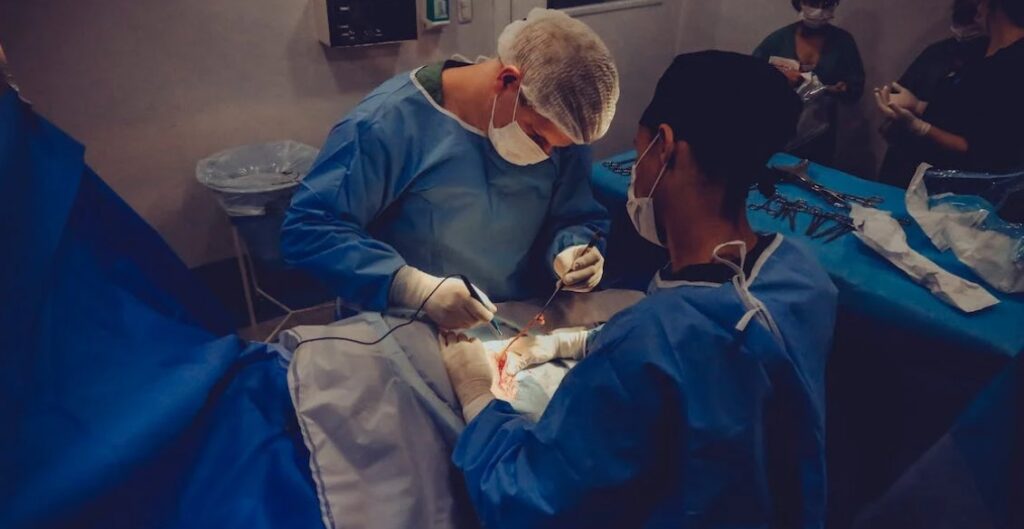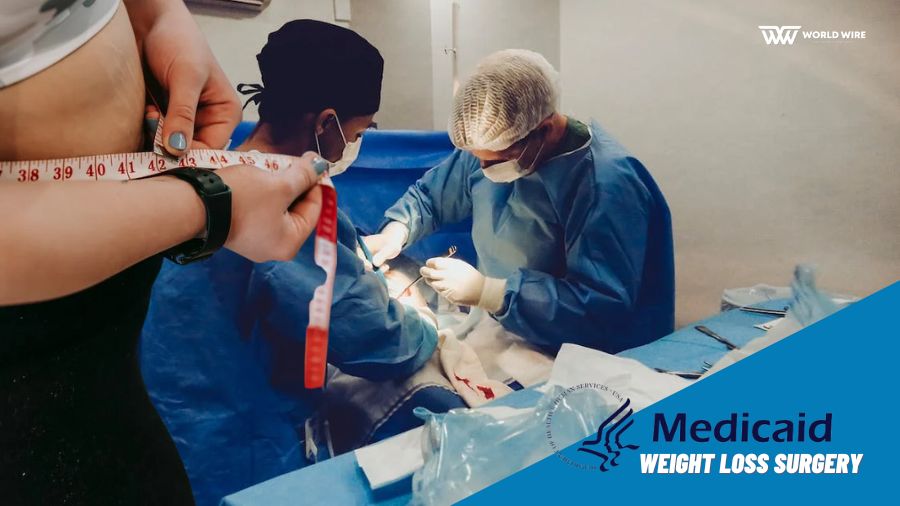Weight loss surgery can be a life-changing and potentially life-saving procedure for those who are struggling with obesity. But does Medicaid cover weight loss surgery? This is the question people often ask.
This article covers detailed information about the same, answering all the queries related to does Medicaid cover weight loss surgery, eligibility criteria, and other information.
So, without any further ado, let’s get started –
Weight Loss Procedures Covered By Medicaid

The number of weight loss procedures covered by Medicaid has been on the rise in recent years. This is due to the growing obesity epidemic in the United States.
Obesity is a major health concern because it increases the risk for a number of chronic diseases, such as heart disease, stroke, and diabetes.
Medicaid covers a variety of weight loss procedures, including –
- Gastric bypass surgery
- Laparoscopic gastric banding
- Gastric sleeve surgery
Each of these procedures has its own risks and benefits, so it’s important to talk to your doctor to see if one of these procedures is right for you.
There are a few reasons why you should consider weight loss –
- It’s estimated that about one-third of the adult population in the United States is obese.
- This number is even higher for adults who are low-income.
- It’s been shown to lead to significant weight loss and improvements in health.
If you’re considering weight loss surgery, you should check with your state’s Medicaid office to see if they cover these procedures.
Criteria for Coverage of Surgery Costs
Medicaid programs vary by state, but all states must cover certain essential health benefits, including hospitalization, doctor’s visits, and prescription drugs.
In order to be eligible for coverage of surgery costs through Medicaid, patients must meet the following criteria –
- They must be United States residents and enrolled in Medicaid at the time of their surgery.
- They must be verified as disabled by the Social Security Administration.
- They must be unable to afford the costs of surgery on their own.
- They must be able to provide proof of citizenship or legal residency.
- They must be able to provide proof of enrollment in Medicaid.
If patients meet all of the above criteria, they would be eligible for coverage of surgery costs through Medicaid.
Which Other Medicaid Considerations Are Required?

Besides the requirements shared above, there are some potential considerations that may be required depending on the state in which you reside. Medicaid considerations include whether the applicant is pregnant, disabled, or blind.
In addition, assets and income limits must be met in order to qualify for Medicaid.
There are a few other Medicaid considerations that you should keep in mind. Each of these has the potential to impact your eligibility for Medicaid, so it’s important to be aware of them and how they might apply to your situation –
Asset transfers
Asset transfers refer to the transfer of assets from one person to another. This is often done to qualify for Medicaid, as it can help to reduce the overall value of an individual’s assets. This can be done through gifting or through trusts.
Spousal impoverishment
Spousal impoverishment refers to the situation where a Medicaid recipient’s spouse could be left with insufficient income and assets to cover their basic needs.
What is the Medicaid Weight Loss Surgery Approval Process?
In order to be approved for weight loss surgery through Medicaid, the patient must first meet certain criteria –
- You must be between the ages of 18 and 65.
- Have a BMI of 40 or higher and have failed to lose weight through diet and exercise.
- You must also have a serious weight-related health condition, such as type 2 diabetes, sleep apnea, or heart disease.
Once the patient meets the qualifications, he or she has to get a pre-authorization from the doctor. If the doctor determines that you are a good candidate for weight loss surgery, they will submit a request to Medicaid for approval.
It is recommended that patients undergo proper testing like lab tests, x-rays, and mental evaluations to ensure approval for the surgery.
Procedures for Weight Loss that Medicare will pay

There are a few procedures for weight loss that Medicaid will pay for.
These procedures are –
Bariatric Surgery
Bariatric surgery is a type of weight-loss surgery that helps people with obesity lose weight and maintain that weight loss over time.
If you are considering bariatric surgery, it’s important to work with a team of healthcare professionals to determine if surgery is right for you. This team may include a registered dietitian, a psychologist or psychiatrist, and a physical activity specialist, in addition to your surgeon.
Note – Bariatric surgery is not a quick fix, and it’s not right for everyone. But if you are struggling to lose weight and have tried other methods without success, bariatric surgery may be an option for you.
Gastric Bypass Surgery
Gastric bypass surgery is a type of weight-loss surgery that is performed when other methods, such as diet and exercise, have failed. The surgery is done by creating a small pouch at the top of the stomach and connecting it directly to the small intestine. This bypasses the rest of the stomach and most of the intestines, which helps to reduce the amount of food and calories that are absorbed.
Gastric bypass surgery is a major operation and should only be considered after all other weight-loss methods have failed.
Note – The surgery carries a risk of complications, such as infection, bleeding, and blood clots. There is also a risk that the stomach pouch may leak. For these reasons, it is important to discuss the risks and benefits of the surgery with your doctor before making a decision.
Sleeve Gastrectomy
Sleeve gastrectomy (SG) is a weight-loss surgery that involves removing a large part of the stomach to restrict food intake and create a feeling of fullness. It is considered a type of bariatric surgery, which is a surgery that helps people with obesity lose weight.
It is a newer type of bariatric surgery, and it is often used as a first-line treatment for people with obesity. SG is less invasive than other types of bariatric surgery, such as gastric bypass surgery, and it has a lower risk of complications. It also has a shorter recovery time than other types of bariatric surgery.
Note – Sleeve Gastrectomy is a serious surgery, and it is not right for everyone.
Laparoscopic Adjustable Gastric Banding
Laparoscopic Adjustable Gastric Banding (LAGB) involves placing an inflatable band around the upper part of your stomach to create a small pouch. LAGB is a minimally invasive surgery, which means it uses small incisions and special instruments.
It can be performed as an outpatient procedure, which means you can go home the same day.
Note – LAGB is generally safe and effective. The risks include infection, bleeding, and damage to the stomach or intestines.
Medicaid will also pay for some of the costs associated with these procedures, such as anesthesia, hospital stay, and post-operative care. Patients must be sure to speak with their doctor to see if they should go for these procedures and to discuss all of the risks and benefits.
Frequently Asked Questions
What is Medicaid?
It is a government health program for low-income people in the United States. In some states, Medicaid covers weight loss surgery, while in others, it does not.
How do I know if I qualify for Medicaid?
To find out if you qualify for Medicaid, you can contact your state’s Medicaid office or visit their website. Each state has different eligibility requirements, so you will need to provide them with your income, family size, and other information to find out if you qualify.
What types of weight loss surgery does Medicaid cover?
In some states, Medicaid covers all types of weight loss surgery, while in others, it only covers certain types.
How much does Medicaid pay?
There are no set Medicaid reimbursement rates, as payments are based on the individual provider’s fee schedule. However, Medicaid reimbursement rates are generally lower than commercial insurance rates. How much Medicaid would vary depending on the type of service being provided, the geographic location, and other factors.
Does Medicaid cover weight loss surgery?
Yes, Medicaid does cover weight loss surgery for eligible individuals.
Who is eligible for Medicaid coverage for weight loss surgery?
Patients must be overweight, with a Body Mass Index (BMI) of 30 or higher, and must have a serious weight-related health condition, such as type 2 diabetes, high blood pressure, or sleep apnea.
What types of weight loss surgery does Medicaid cover?
Medicaid typically covers all types of weight loss surgery, including gastric bypass surgery, gastric sleeve surgery, and lap band surgery.
How much weight can you lose with weight loss surgery?
In general, most people who have weight loss surgery can expect to lose about 65% of their excess weight after one year. So, if you’re 100 pounds overweight, you could lose 65 pounds after surgery. Of course, this is just an estimate – some people lose more weight, and some lose less.
Table of Contents







Add Comment